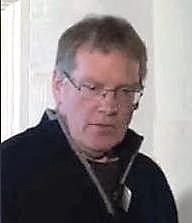Pat Conaty
 Pat was educated at the University of California, studying Political Economy. After working as a researcher at nef for eight years, he became a nef fellow in 2007.
Pat was educated at the University of California, studying Political Economy. After working as a researcher at nef for eight years, he became a nef fellow in 2007.
In the 90s Pat was Development Director of the Birmingham Settlement, an inner city community regeneration organisation. He led the setting up of inner city social enterprises: credit unions, Business Debtline, the Aston Reinvestment Trust (ART) – a mutually owned, local Community Development Finance Institution (CDFI) – and ART Homes for home improvement finance. Both were the first of a kind nationally and both are still going strong but now with separate staff and office locations. Since then there have been over 50 CDFs set up similar to ART across the UK and almost 10 CDFs similar to ART Homes.
He is a founder and former Executive Director of the UK Sustainable Investment and Finance Association – the national association of socially responsible investment organisations.
Before he moved from Birmingham to Powys, Pat co-founded Localise West Midlands with Colin Hines. In Wales he became an Executive Director of the Rebuilding Society Network, a social enterprise in Mid Wales which has set up a social enterprise model to establish a Community Land Bank opening up access for food growing sites on secure leases for community groups in urban and rural areas. This work has been done for the National Federation of City Farms and Community Gardens who are leading the development of the CLB with the support of groups like Transition Network and the National Trust.
At the University of Salford, working with Community Finance Solutions, he developed a national Community Land Trusts training programme, running courses since March 2011. Community Land Trusts offer a community led ‘bottom-up’ approach to housing issues and creative, ecological developments.
In 2011 new figures from Co-operatives UK showed that member owned energy organisations is the fastest growth area for co-operative businesses in the UK. The data was released alongside a comprehensive research report on the sector – ‘A Co-operative green economy – New solutions for energy and sustainable social justice’ written by Pat Conaty and published by Co-operatives UK, which explored the potential for co-operative solutions in renewable energy and household energy reduction.
Excerpts from Pat’s book, 2012 ‘The Resilience Imperative’, written with Mike Lewis, are available here, with comments from international sources and more familiar commentators, including Richard Heinberg, Ed Mayo, James Robertson, Stewart Wallis, Hazel Henderson, John Restakis, Colin Hines, Ann Pettifor and Neal Lawson.
When Pat was teaching on the 2013 Schumacher College course “Enterprising Futures: Exploring Enterprise Models for the 21st Century” he was asked to give a public lecture on monetary reform, co-sponsored by Earth Talk and Transition Towns UK. The college has put it on YouTube.
In the same year he co-authored, Mainstreaming Community Economic Development, groundbreaking research into how a localising approach to economics can contribute to prosperity, social inclusion and local distinctiveness, and how this can be integrated into conventional economic development.
The 2014 Citi Foundation and Community Development Finance Association awards recognised several organisations finding innovative ways to finance the communities that need it most. Pat received an individual award for working to improve access to finance and support the community development finance sector. Pat also sent a link to his Guardian article and a link to the report on Social Co-operatives launched in July 2014 in Cardiff by Ed Mayo.
In 2015 he was continuing – with Co-operatives UK and the Wales Co-operative Centre – to work out ways to introduce their multi-stakeholder co-op model here. The Italian model has been successfully adapted and replicated in Quebec since 1994 and in Japan by the Seikatsu Food co-ops. The growth rates of innovative co-ops in both countries is striking.
With funding from a body in Germany, Pat co-edited a report earlier this year (2016) on how different democratic money and co-op capital systems can be united, with David Bollier who worked for years with Ralph Nader in the USA. See the summary blog by David below with the link to the report: http://bollier.org/blog/democratic-money-and-capital-commons. Both authors subsequently set up this Democratic Money Initiative Wiki page to keep the flow of ideas going and people like James Robertson and many other experts globally have made contributions; the link: https://wiki.p2pfoundation.net/Democratic_Money_Initiative’
0